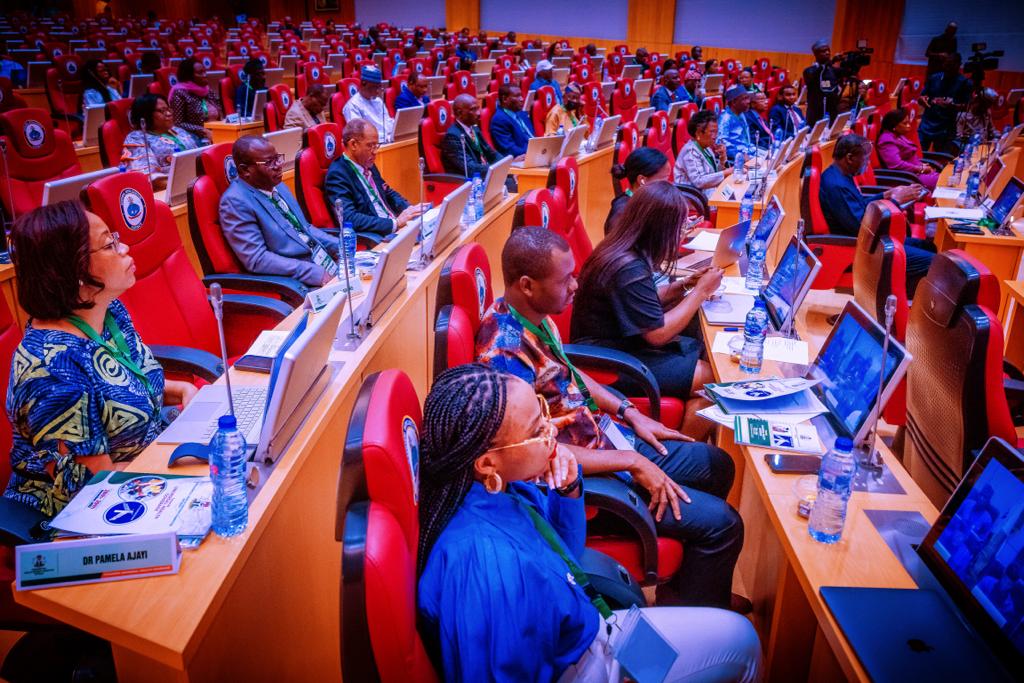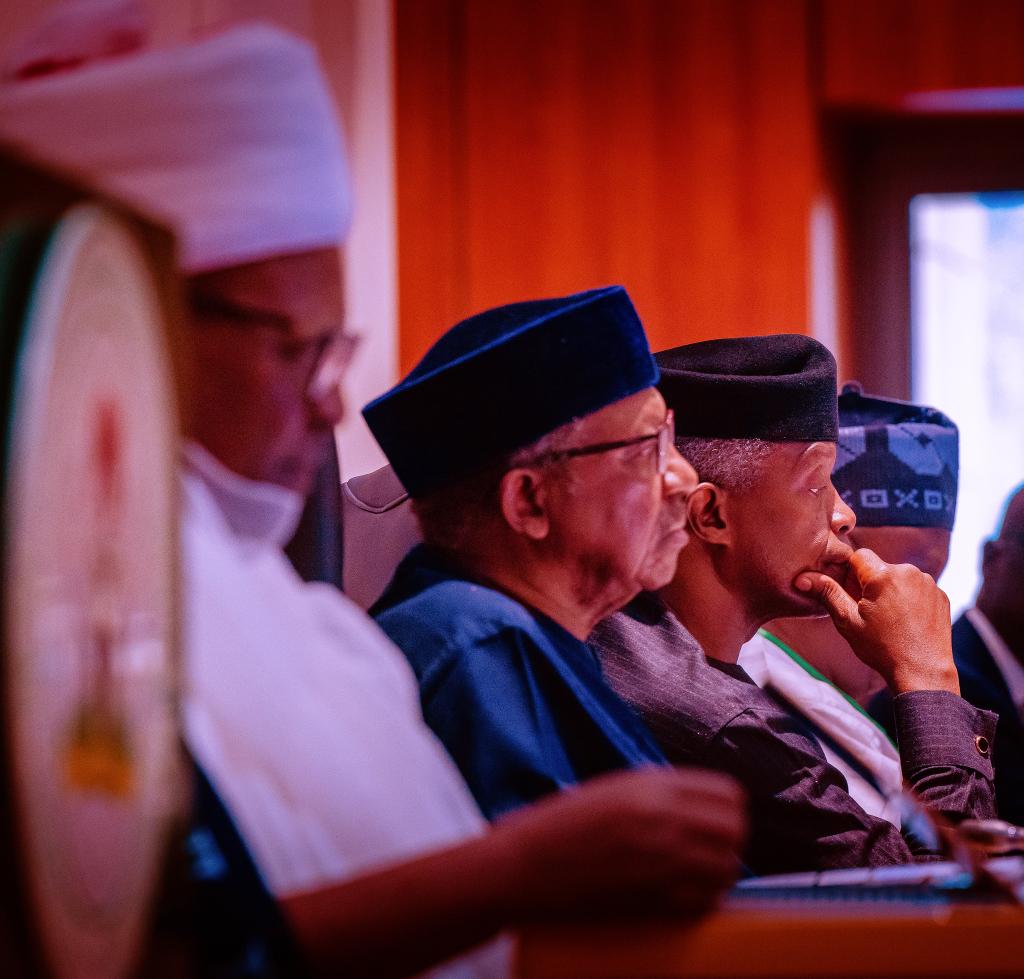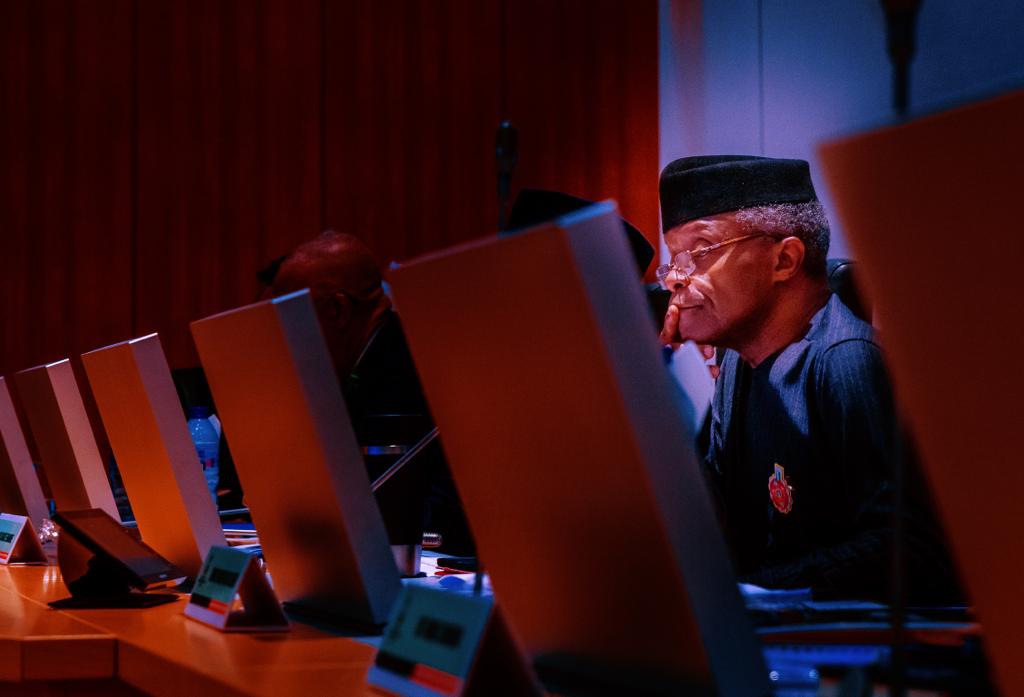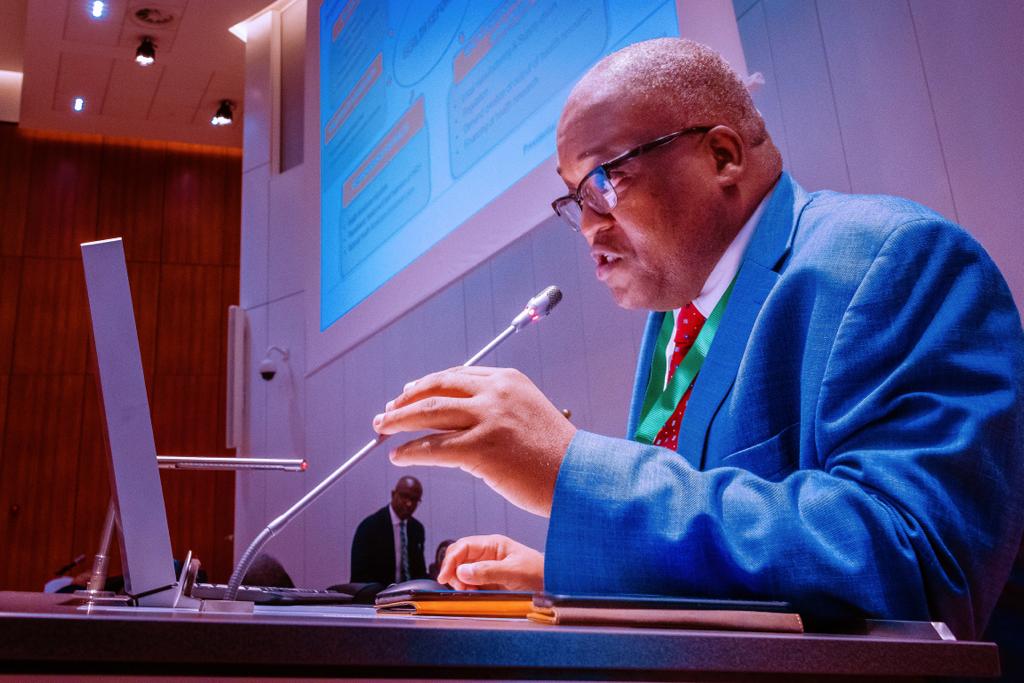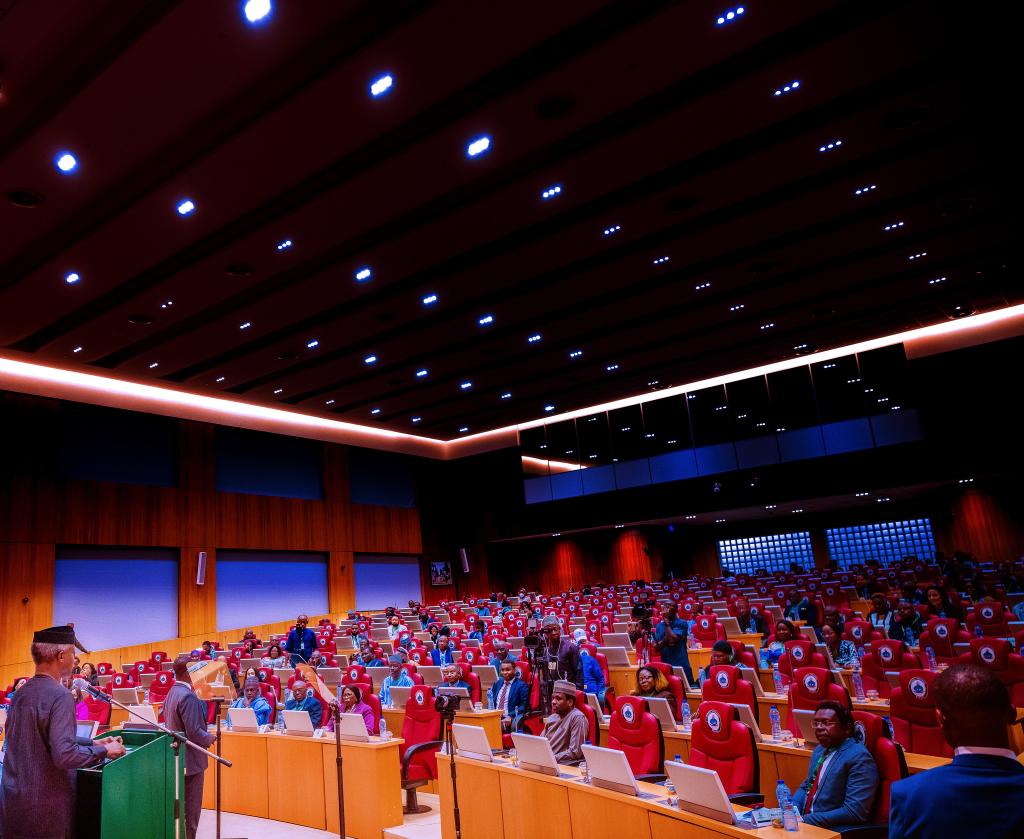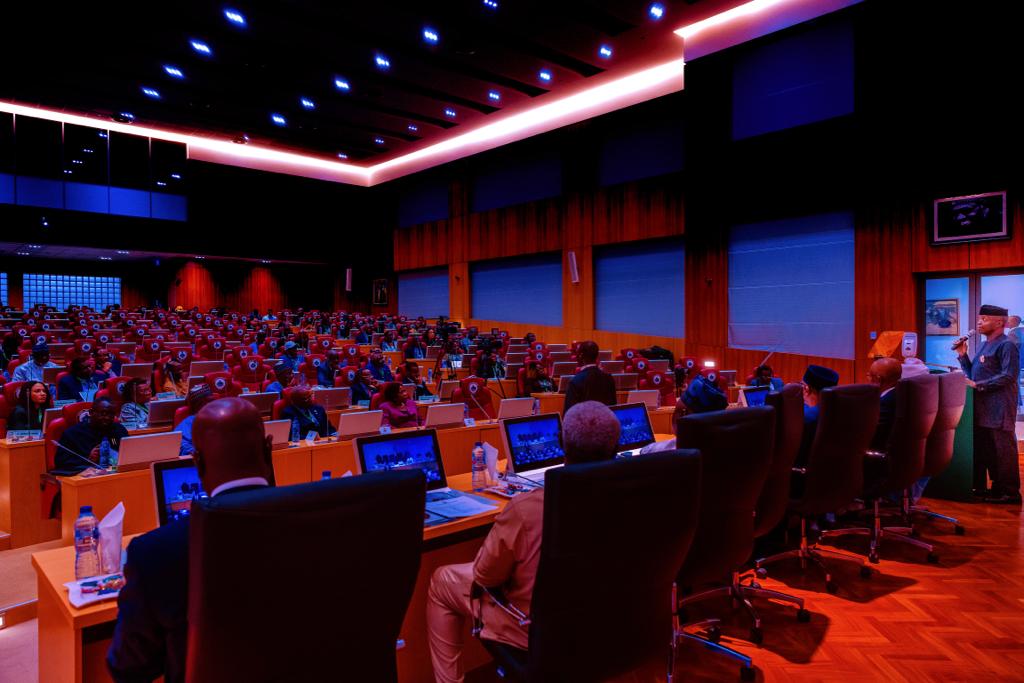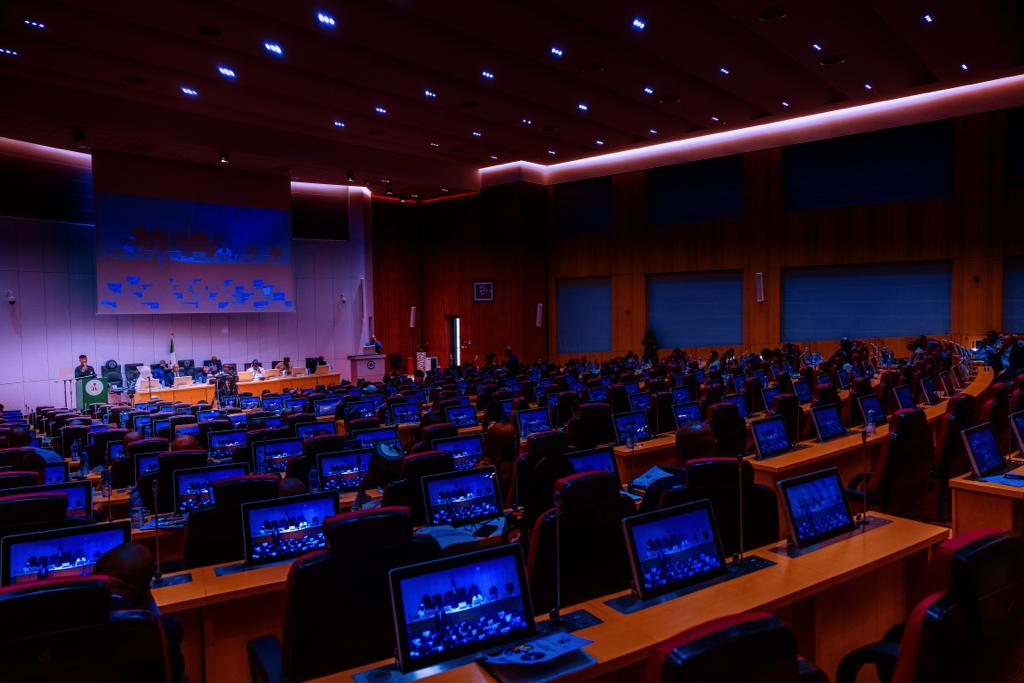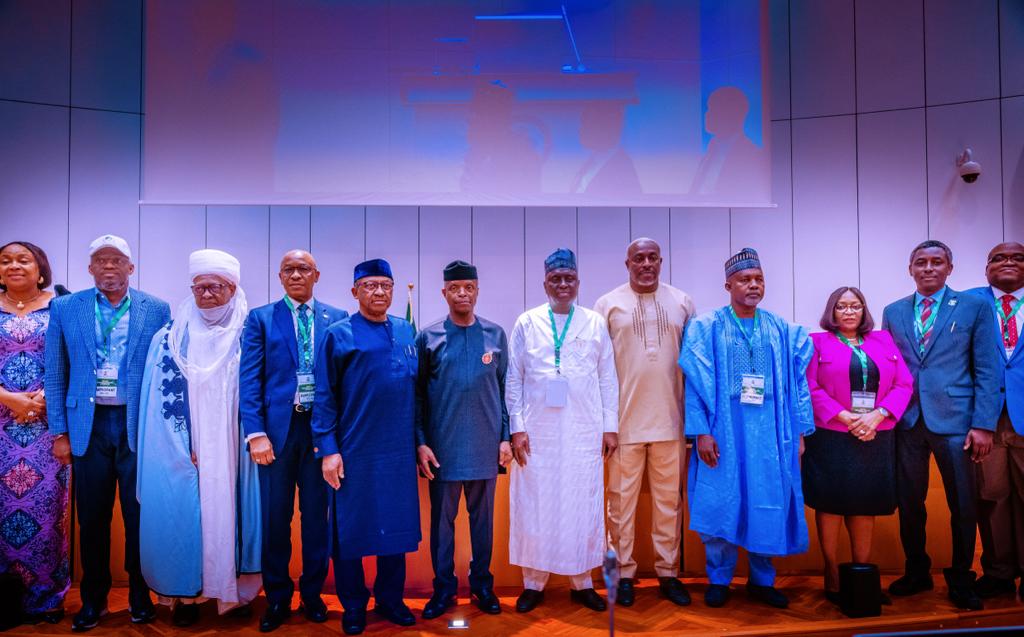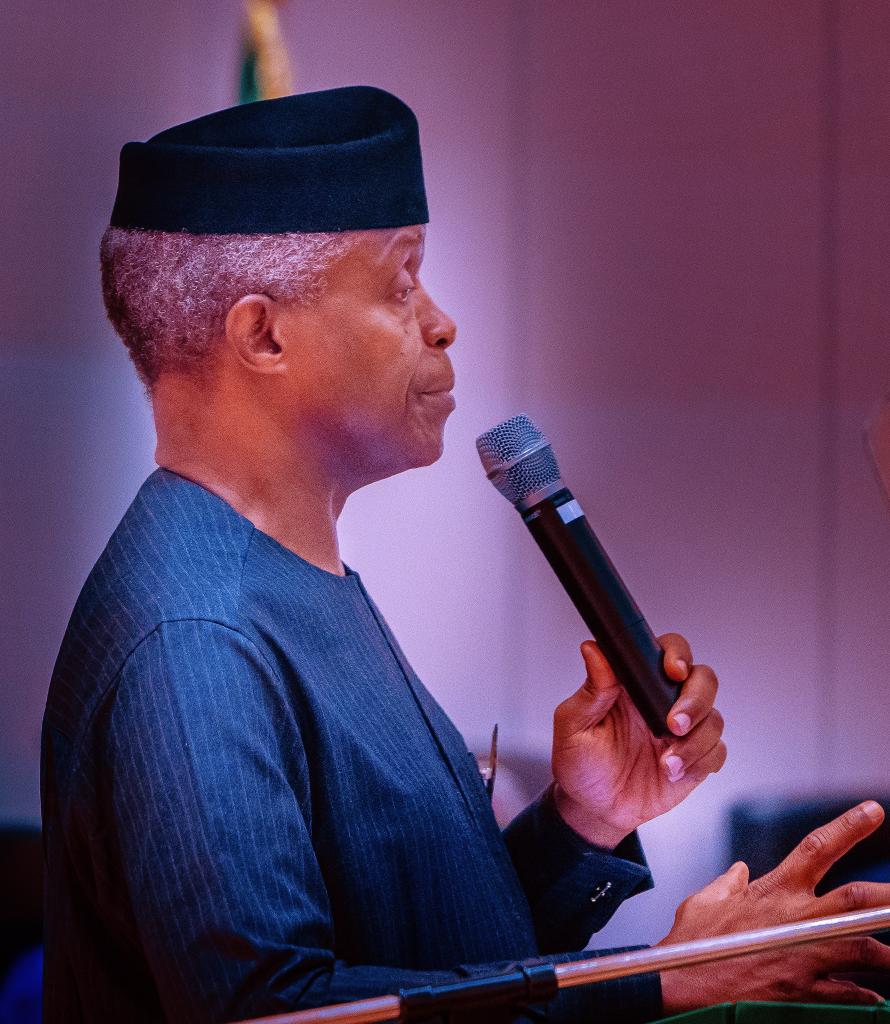Opening Of The Two-Day Presidential Health Reform Committee Retreat At NIA Headquarters, Abuja
SPEECH DELIVERED BY HIS EXCELLENCY, PROF. YEMI OSINBAJO, SAN, GCON, VICE PRESIDENT OF THE FEDERAL REPUBLIC OF NIGERIA AT THE OPENING OF THE TWO-DAY PRESIDENTIAL HEALTH REFORM COMMITTEE RETREAT AT NIA HEADQUARTERS, ABUJA ON THE 28TH OF NOVEMBER, 2022
PROTOCOLS
I bring you the warm greetings of His Excellency, President Muhammadu Buhari, GCFR, who keeps asking me how far we have gone with the reform process, to which I have always responded, it is ongoing.
Health reform has always been a front-burner issue for many administrations before us. And the reasons are quite obvious, our public health indices have been poor over the years, and existing facilities can hardly cope with the current population which continues to grow by 2.4 -2.5%, annually. We are told by experts that we have a hybrid disease pattern with a high occurrence of both communicable and non-communicable diseases.
Most medical expenses are paid out-of-pocket, our out-of-pocket expenditure index is 70. The result is that illness is not merely physically debilitating, it could also be financially ruinous. Our systems both at Federal and State public hospitals have generally been adjudged inefficient and burdensome.
It is estimated that we require $4billion per annum to be able to achieve universal health coverage. However, with our annual population growth rate, that figure can only go higher. It is also evident that relying on budget alone to fund healthcare is well-nigh impossible.
There is also the problem of inadequate medical and paramedical personnel, an issue which becomes even more noticeable the farther one goes from urban to rural areas. Some of the suggestions we have heard already suggest ways of trying to make up these numbers. And in recent months doctor to patient ratios have fallen even more precipitously on account of brain drain.
Previous attempts have been made to improve our healthcare system, but implementation has either been incomplete, non-systemic or haphazard. Sometimes, the records of previous attempts have been poorly kept. You’d find that in trying to build on previous reforms, the problem of acquiring information on previous attempts is very difficult which should not be the case ordinarily. I think that just as a matter of policy, every reform effort should be documented and made available across the public service and public websites and other public portals.
This particular exercise is one that we will keep the public well aware of, and keep on public portals as well. Anyone who wants to understand ongoing research doesn’t have to go looking at the Federal Ministry of Health, it should be publicly available.
An important point to bear in mind is the fact that a National Health Reform Initiative is not the same as a Federal Government Health Reform Initiative.
The States according to our Constitution, have responsibility also for primary and secondary healthcare and can participate in tertiary healthcare. Any reform without the full participation of the States will fall short of a national health reform effort. So, this was the state of play in the health sector when on September, 6th. In 2021 the President inaugurated the Presidential Health Reform Committee and I was given the privilege of Chairing the Committee of 29 distinguished members.
The Committee was to be guided by the following Terms of Reference:
i The development and implementation of a Health Sector Reform Programme for Nigeria in close collaboration with State Governments and the FCT Administration, taking into cognizance the Diagnostic Report developed by Vesta Healthcare Partners, the review report of the Federal Ministry of Health Advisory Committee and other Health Reform proposals that may be submitted to the Committee.
ii Review all healthcare reforms adopted in the past two decades and factor the lessons learnt into the development of the new Health Sector Reform Programme.
iii. Chart out a health system that best meets the needs of Nigerians in the 21st century, with special emphasis on strengthening Primary Health Care, improving access to Health Insurance, and establishing a platform that enables the country to better respond to future pandemics.
iv Make any other recommendation to the Government as may be considered appropriate towards improving healthcare delivery in Nigeria.
The mandate was to address the question of universal health coverage and this remains the key objective of the reform process.
For healthcare reform, there must be a vision and clarity of what we expect to see. The overarching objectives of reform must be clear. In the United Kingdom, the NHS is the ultimate objective of their reform, in the US they try to do something with the Affordable Care Act to bring in as many people as possible to be able to benefit from some kind of free healthcare system.
Ultimately, what most societies hope to do is to provide their people with either free healthcare or affordable healthcare.
Of course, the critical components of that objective are also subject matters of reform these include Health Insurance for all, Primary Care and Pandemic Preparedness.
However, it is worthwhile to note that this government has made a significant efforts to lay some important building blocks for reform even in the cause of the life of this administration.
In 2018, the President signed the bill establishing the Nigeria Centre for Disease Control (NCDC), which enabled the agency to respond to the challenges of public health emergencies and enhance Nigeria’s preparedness and response to COVID-19, epidemics through prevention, detection, and control of communicable diseases.
On May 24th this year, President Muhammadu Buhari signed into law the National Health Insurance Authority Act 2022. This new Act is an important milestone for health financing in Nigeria and this is fundamental to any health reform we plan to do. This addresses the chief concern around universal health coverage.
It will mitigate the current difficulties of out-of-pocket expenses and create a virtuous cycle. It means that more money will be available for the payment of medical personnel and for hospital facilities and resources.
Ultimately health insurance will accelerate our journey to universal health coverage through health insurance for all categories of Nigerians via a mandatory mechanism, in collaboration with State health insurance agencies. (I understand a National Health Insurance Summit is being planned to continue the process of ensuring full implementation of the bill.)
In March of this year, the Primary Healthcare Summit took place. This was organized by the Federal Ministry of Health and the National Primary Healthcare Development Agency towards re-imagining primary healthcare in Nigeria, where a case was made for private partner partnerships to complement improving infrastructure, availability of health commodities, health workforce and use of evidence to deploy resources.
For a population this size, we really cannot ignore it, we must find a way of strengthening primary healthcare.
At the sub-national level, we have also seen a lot of the work that the governors have been doing and we must commend the recent launching of the Primary Healthcare Leadership Challenge Fund which was launched by the 36 Governors which is a commitment by the 36 Executive Governors to elevate primary health care higher on their agendas. All of these events and others are points of progress which must now coalesce into one central programme which is the objective of this particular reform effort.
In the past few months, the secretariat of this committee has been working in conjunction with our various partners to develop a Consultation paper that is expected to guide and focus the discussions. This includes experts from the Ministry of Health, Vesta Consultants, Bill and Melinda Gates Foundation, W.H.O, World Bank, FCDO, IFC, Global Fund, AFENET, DPRC (the research arm of NIPSS) and PWC, a team of wide-ranging specialists.
The overarching principle of this process has been inclusivity. This is reflected in the membership of this committee which includes representation from the States, Professional healthcare bodies, the private sector, and distinguished medical academicians. You will also note that we approved the co-option of additional MDAs, sub-national representation facilitated by the Nigeria Governors Forum and the Commissioners of Health Forum, NGOs as well individuals with experience in the business of health.
Indeed, if there is anything we learnt from the COVID -19 pandemic and especially its aftermath it is that healthcare, especially public health emergencies cannot but have a multi-disciplinary, multi-sector approach. As a result, serious health reform must have the same multisectoral approach, which is why we have the Ministry of Agriculture, Environment, very well represented today in all of our deliberations and processes, and several other ministries.
I must particularly commend State Governors who through the NEC and Governors’ Forum have worked together with the Federal Government on healthcare and healthcare reform. Every month, public health reports are shared at our NEC meetings and they have supported all health reform initiatives. We also have departments devoted to Human Capital Development, Education and Healthcare, and they have been an integral part of the advocacy of the National Health Reform, bearing in the mind the difficulties of a National Health Reform where you have the States components and Federal Government components, we have done well with the State Governments.
I have no doubt that we have the right calibre of people on this committee to address the myriad challenges of the health sector.
You have all received the consultation paper as well as other documents to help in this assignment. We have also received responses from several of you which have been analysed and prepared for your consumption. This retreat will be the first opportunity for the committee to meet in person, especially for deep dives within the thematic areas and sub-committees. It is expected that within these 2 days, at the very least, we will define a trajectory for the future of proposed recommendations for reform. It is hoped that a draft document should be ready by January 2023.
We must recognize that reforms can be complex. I have been involved in quite a few. And the lessons learnt are there are no silver bullets and no perfect approaches. This is especially true in huge areas such as healthcare.
As we have seen usually, previous efforts must be taken into account, you may have several small and even local reforms going on at different times. What is crucial is that we set the broad parameters and vision for the health care system we desire for our people, and we adopt a flexible approach, that enables us to track and incorporate other reform initiatives. We ensure that we always have the right people around the table, that there is wide-ranging consultation, that all views are properly considered, that we keep our vision clear through the process and we develop a robust and viable implementation process.
Let me as I close, mention the commendation of our development partners. Thank you for the commitment of your resources and time. It is obvious that you saw the importance of this program and you supported us to the fullest by actively participating in a series of activities that have now culminated in this event.
I must also commend all members of the Presidential Health Reform Committee, and our secretariat for answering the call to service, and for your hard work, dedication and commitment to this process.
Thank you all, and I hope our deliberations today and tomorrow will yield some results that will benefit our people.
Thank you very much.



